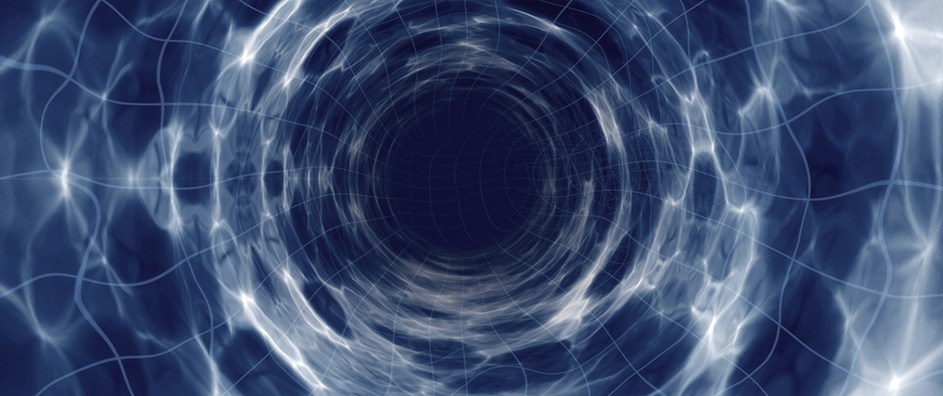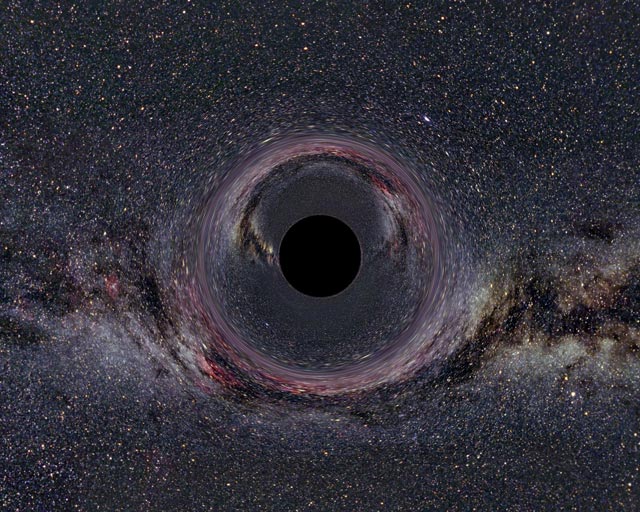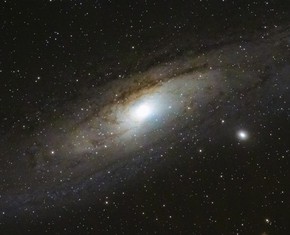The views expressed in our content reflect individual perspectives and do not represent the authoritative views of the Baha'i Faith.
Theoretical physicists have begun to wonder whether our universe might not be the only one.
Ever hear the phrase “I think I live in a parallel universe?” You’ve got the basic idea, then.
The multiverse, scientists call the concept, and it describes a hypothetical set of an infinite number of possible universes, which when taken together make up everything that exists and can possibly exist. Scientists and theoreticians who work in astronomy, physics, quantum mechanics and cosmology have all proposed some variation of the multiverse idea, and it has begun to gain some credence in a host of scientific and spiritual contexts. No proof yet exists, but so-called M-theory physicists have surmised that our familiar “Big Bang” creation scenario might have been the result of a collision between two universes in the multiverse; or may have sprung from a super-massive black hole.
While theories like this one may sound wild, and hard to even conceptualize or imagine, scientists who study the collapsed stars in this familiar universe have begun to discover some equally strange and disorienting facts about the black holes at the center of galaxies, including our own Milky Way.
Here’s how it works: when stars die, a supernova explodes into space; and gravity squeezes the remaining core of the dying star, collapsing it into a white dwarf or a neutron star or a quasar — or a black hole.
Recently, physicists and astronomers determined that black holes reside at the center of most galaxies. The Milky Way’s central black hole, called Sagittarius A* (pronounced A-star), weighs 4.3 million times as much as the sun, and its immense gravitational pull draws in everything nearby, even including light itself. That’s why no one can see a black hole – we only know it’s there because of its effect on other celestial bodies. This reminds many spiritual thinkers of their conception of God.
Beyond its invisibility, here’s the most amazing thing about a black hole – it can literally warp time. Black holes, because of their enormous gravitational pull, alter time itself by bending the space-time continuum. A century ago, Einstein proved that gravity can actually bend space. Building on that knowledge, we know now that the massive gravitational pull of a black hole not only bends space, but time itself. National Geographic puts it this way:
Black holes, with their incredible gravitational pull, are basically time machines. Get on a rocket, travel to Sagittarius A*…. For every minute you spend there, a thousand years will pass on earth. It’s hard to believe, but that’s what happens. Gravity trumps time. – Michael Finkel, Star Eater, National Geographic, March 2014, p. 102.
For those who believe in a completely explainable, logical and rational view of our human existence, these scientific findings challenge that view by breaking all known physical laws.
In fact, this relatively new scientific information completely contravenes and upends the two major theories that have previously tried to explain the workings of the physical universe – quantum mechanics and general relativity. But this stunning information may give us a clue about how the multiverse creates new universes in a hyper-massive, never-ending, cyclical process of creation and re-creation: a giant star dies and becomes a black hole, which in turn becomes the womb for the big bang that gives birth to new stars or even a new universe.
If you believe that science has all the answers, or that science has removed much of the beauty and mystery of existence, this information should challenge those views. If you believe that the basic “laws” of physics always apply to everything, then the very nature of black holes negates that belief. And if you accept the Baha’i principle of the agreement of science and religion, then this perpetual, galactic, multiversal engine of creation sounds a lot like the work of a Supreme Being, a Creator, a First Cause, an incubator of Being, a generative spiritual force far beyond the abilities of science to conceptualize or understand.
These contemporary scientific theories and discoveries support the remarkable Baha’i view that creation has no beginning and no end. Perhaps the writings of Baha’u’llah can give us a hint about the enormity of this realization:
A drop of the billowing ocean of His endless mercy hath adorned all creation with the ornament of existence, and a breath wafted from His peerless Paradise hath invested all beings with the robe of His sanctity and glory. A sprinkling from the unfathomed deep of His sovereign and all-pervasive Will hath, out of utter nothingness, called into being a creation which is infinite in its range and deathless in its duration. The wonders of His bounty can never cease, and the stream of His merciful grace can never be arrested. The process of His creation hath had no beginning, and can have no end. – Gleanings from the Writings of Baha’u’llah, p. 61.

















Comments
Sign in or create an account
Continue with Googleor